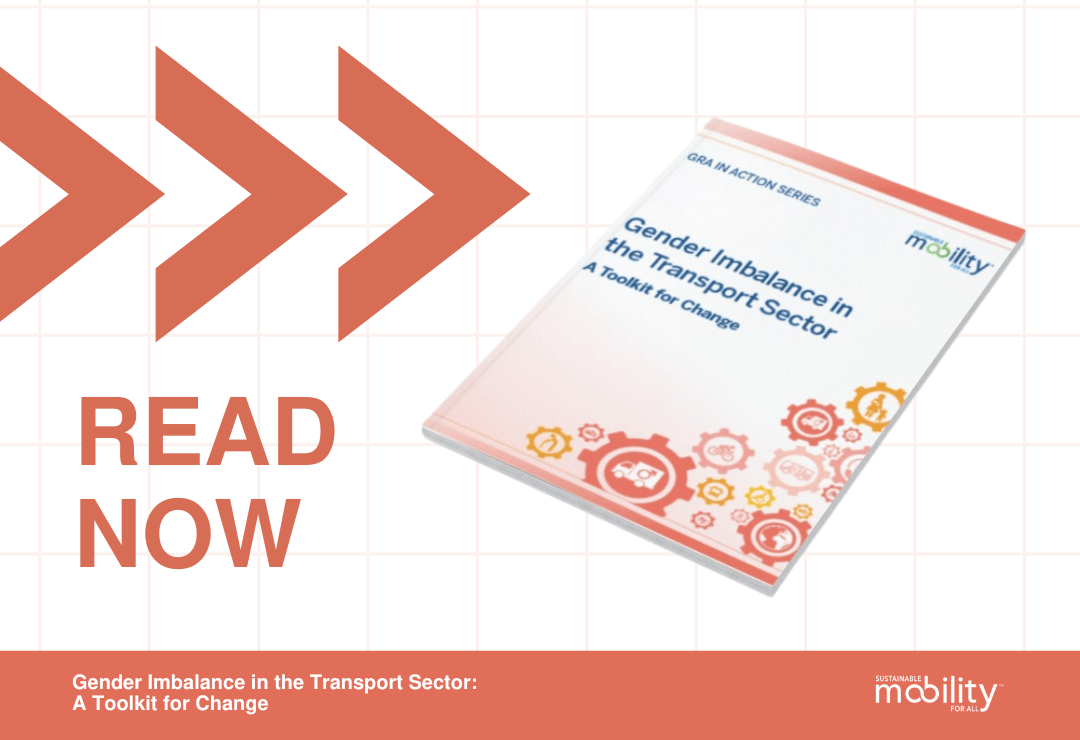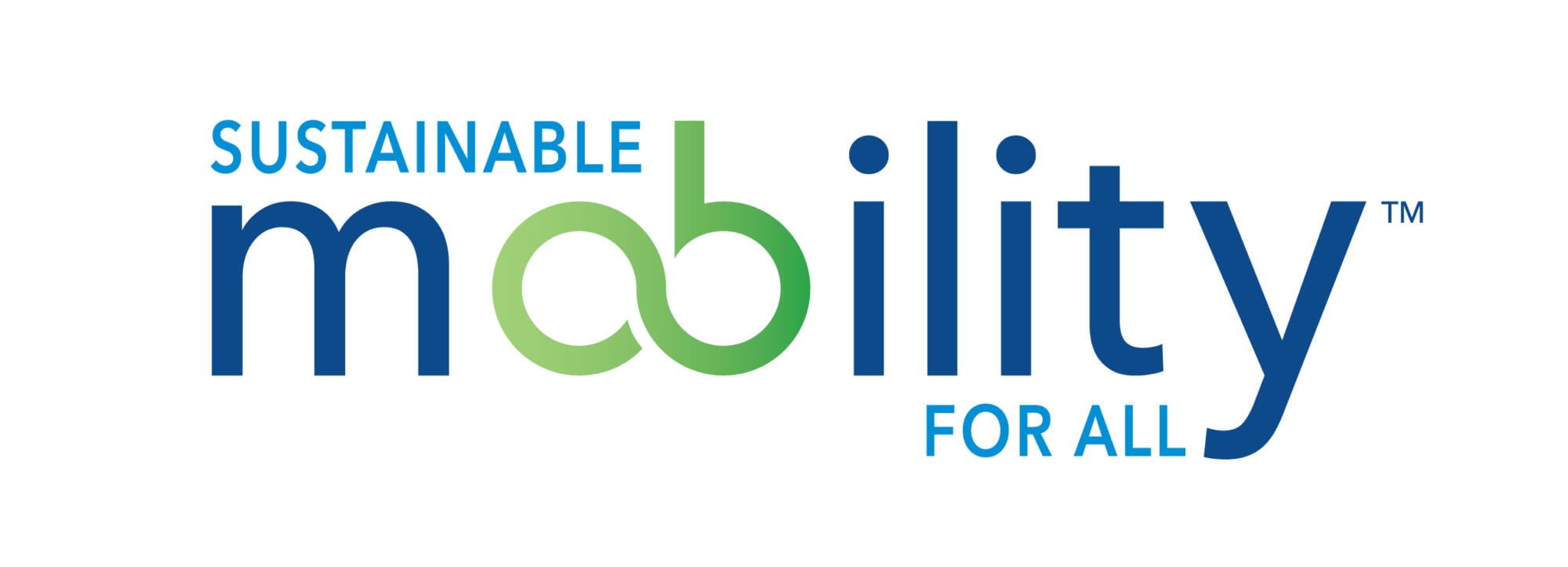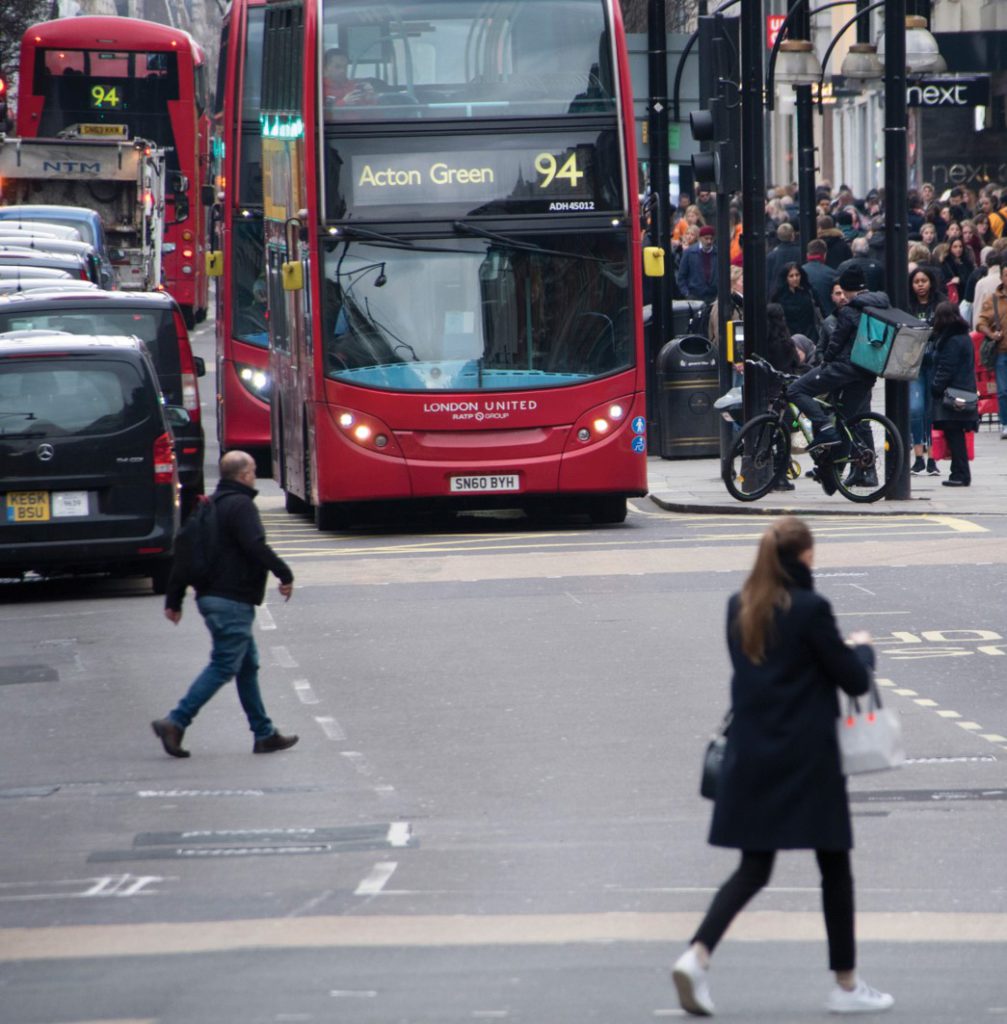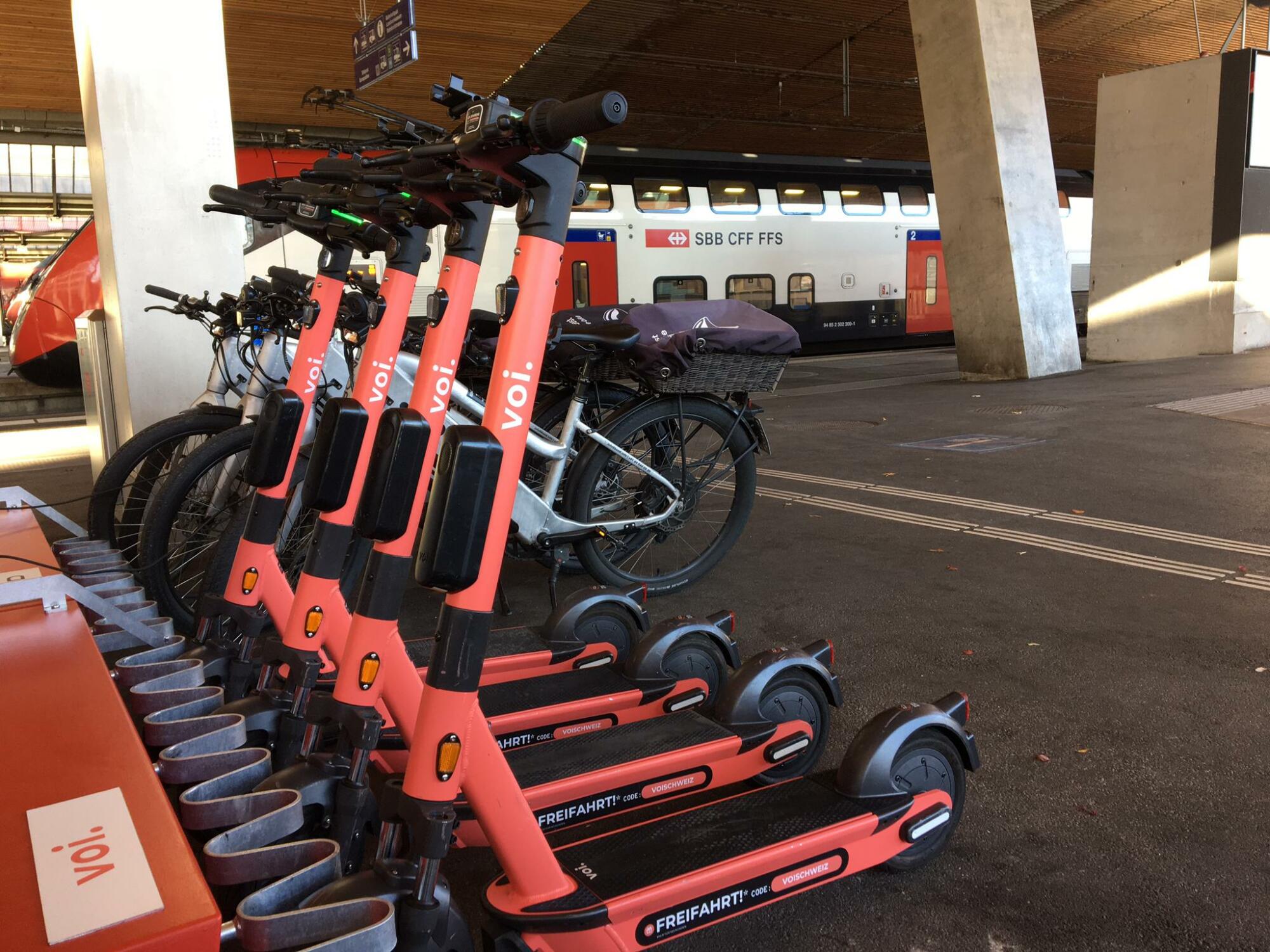Gender balance in the transport sector: A toolkit for change
A new report written by POLIS for the Sustainable Urban Mobility for All (SuM4All) Gender Working Group exposes the transport sector's significant gender imbalance and provides a comprehensive toolkit for creating targeted action on the ground.
Worldwide, the transport sector is facing a significant gender imbalance. According to the International Labour Organization’s latest figures, women make up just 16.8% working in transport globally. This differs immensely regionally, with 29% in North America, 5.5% in Arab States, 10% in Africa and 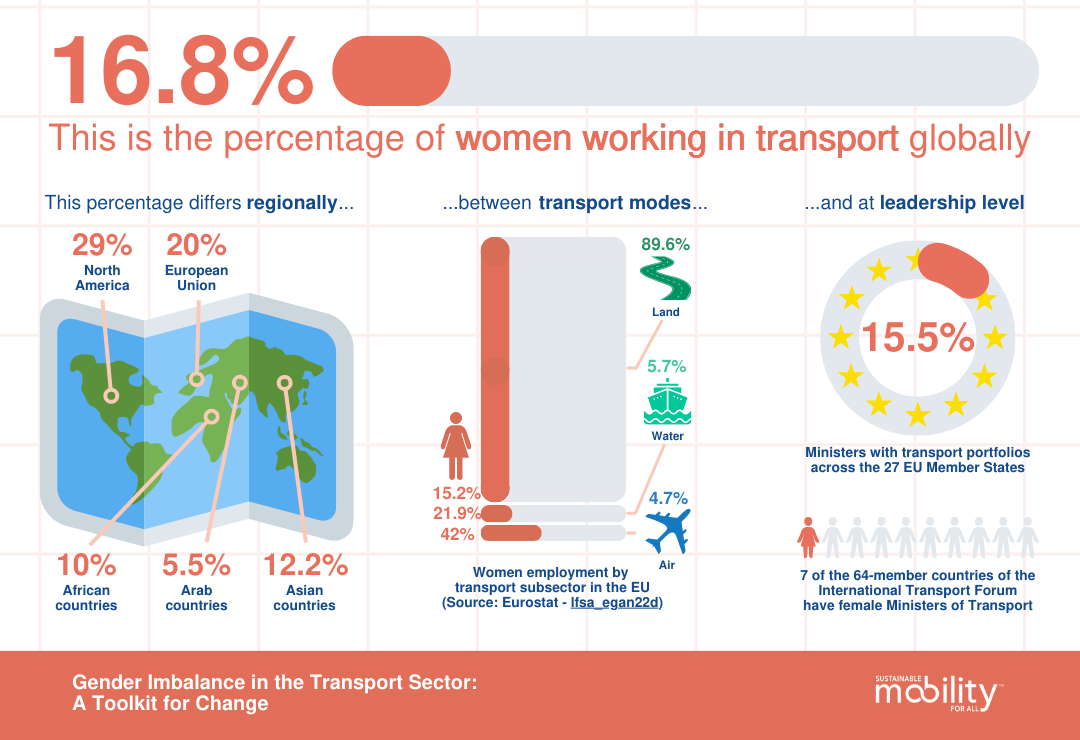 12.2% in Asia and the Pacific-nonetheless, the lack of women (particularly in STEM-related roles) is visible across the entire sector.
12.2% in Asia and the Pacific-nonetheless, the lack of women (particularly in STEM-related roles) is visible across the entire sector.
Transport now faces an important moment for action. Digitalisation and automation are transforming working practices, an accelerating climate emergency prompts the urgency for more sustainable practices, and skills and labour shortages persist. Confronted with this complex medley of challenges, the need to recruit and retain women in the sector can no longer be ignored.
There is growing recognition of the need not simply to shift, but transform this imbalance, with repeated calls for action from transport organisations across the globe. However, the last decade has seen neither the scale nor speed of progress required, and there has been little significant improvement in the situation on the ground.
So how do we shift from ambition to action, creating tangible change?
The ‘Gender imbalance in the transport sector: A toolkit for change", developed by POLIS for the Sustainable Urban Mobility for All Gender Working Group, with funding from the FIA Foundation, seeks to address this.
“As this study reveals, these inclusive transport services cannot be delivered without a more diverse workforce. We need to be able to reflect and represent who we seek to serve, and at present, the transport workforce is far from achieving this much-needed diversity. The lack of gender diversity in particular is apparent. While we have seen a growing recognition of the necessity for change, displayed vividly in this study, translating words into action has been far slower,” says Karen Vancluysen, POLIS’ Secretary General.
Informed by extensive primary and secondary research conducted over a year, the toolkit surveys the current state of the transport workforce, and the key changes we have witnessed across the last decade and identifies the key barriers which are obstructing progress.
The report, co-authored by Isobel Duxfield and Heather Allen, launched at the ITF Summit in Leipzig, is the most up-to-date and extensive research on gendered employment practices in the transport sector so far. It provides in-depth case studies on how actions can be initiated, the technologies on hand to assist, partnerships which can be created, and other key information for practitioners seeking hands-on solutions.
The research unveiled tha t despite progress in global and national policy arenas, women working across the transport sector continue to face multiple impediments to entering, remaining, and advancing their careers. While there are regional and modal variations, the toolkit identifies 5 key barriers to women’s ability to enter and flourish in the transport sector and 5 entry points for action.
t despite progress in global and national policy arenas, women working across the transport sector continue to face multiple impediments to entering, remaining, and advancing their careers. While there are regional and modal variations, the toolkit identifies 5 key barriers to women’s ability to enter and flourish in the transport sector and 5 entry points for action.
Gendered stereotyping, discriminatory and unsafe workplace cultures, lack of flexible working and childcare provisions and ‘invisible’ glass ceilings are constraining progress towards a more gender-balanced workforce, with detrimental impacts on those women already working there.
Although international and national equal opportunities and anti-discrimination policy frameworks lay the foundations for change, decision-makers in the transport sector cannot rely solely on these to generate the transformative shifts necessary at the rate required.
Targeted, effective action demands positive action at the organisational level, and there are many out there, which have proved incredibly successful; from innovative approaches to flexible working, new ways of collecting employee satisfaction data, partnerships between universities and operators, and platforms for addressing gender bias in recruitment.
“While this study is a stark reminder of the immense progress still to be made, it also demonstrates that we do not need to reinvent the wheel. If we are to fulfil gender equality, and indeed, climate pledges, the time is not ours to fitter away. The tools, processes, and partnerships outlined in the toolkit provide a huge resource for those seeking to act fast to push beyond ambition and toward systemic action,” says Vancluysen.
This is not to say achieving gender equality will be easy, nor happen immediately, but action must start now!
You can read the full report HERE.
